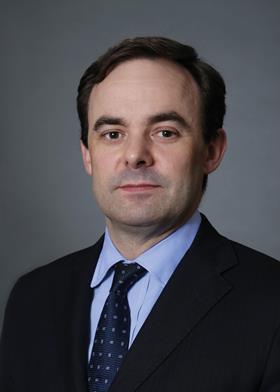Under the Legal Aid and Advice Act 1949, 80% of the population of England and Wales became eligible for legal aid which was administered by the Law Society and applied to those of ‘small or moderate means’.


Since then, successive cuts to legal aid by various governments have significantly reduced its scope, eligibility criteria and payments. The Legal Aid, Sentencing and Punishment of Offenders Act 2012 removed legal aid provision for most areas of civil law including family, employment, welfare benefits, immigration, and housing law.
Cuts to legal aid fees for lawyers have resulted in solicitors and barristers leaving certain practice areas or not going into them in the first place. In such circumstances, even if someone is eligible for legal aid, there may not be a lawyer to provide the service.
Pro bono legal work has been an integral part of the profession since medieval times. Today, most regional, City and international law firms have established sophisticated pro bono practices alongside their fee-earning work.
Contrary to what some believe, it is not simply a box-ticking exercise. Specialist pro bono programmes are run by dedicated, full-time pro bono professionals who work closely with senior leadership and community organisations to channel the skills of lawyers effectively towards helping those who need it most. Training in relevant areas of law (secondary specialisations) or partnering with established practitioners is key to their success.
A central rule of true pro bono programmes is that work should not be done pro bono if it is covered by legal aid. Pro bono programmes may complement the legal aid system, but an important feature is that the work was never intended to be paid for in the first place. This can be contrasted with the unfair situation in which many legal aid lawyers find themselves – namely having to conduct work unpaid because the budget will not cover the actual time required to conduct the matter properly.
Lawyers who provide pro bono services where individuals are not eligible for legal aid (and cannot afford private representation) are filling part of a gap, but it would be wrong to imagine that they can connect with every deserving case or even that they should try to.
Voluntary pro bono programmes cannot reach the scale necessary to provide a comprehensive countrywide service. They place considerable demands on practitioners who are also busy with fee-paying work. Mandatory pro bono requirements would be grossly unfair on smaller practices and it is unclear how training, quality control and supervision for such work could be enforced.
Pro bono work should only ever be viewed as a parallel service and not an alternative to the general provision of legal aid.
Two areas of intense need are family law and welfare benefits. Most family law matters are no longer in scope for legal aid, leaving significant numbers without advice and representation. The charity Not Beyond Redemption is an excellent example of how some in the legal sector have attempted to address that need. Established by family law solicitor Camilla Baldwin, it is the only charity that provides legal advice and representation in court for mothers in prison.
Partnerships between Not Beyond Redemption and law firms aim to ensure that high-quality family law advice is available to these women. It is estimated that 17,700 children are separated from their mothers by imprisonment, and only 5% remain in their own home once their mother has been sentenced. Pro bono legal advice is therefore crucial to the provision of access to justice for these mothers and their children.
Sidley Austin was a foundational partner with Not Beyond Redemption, and multiple other firms have since joined the project. After training under the supervision of specialist family lawyers, lawyers from Sidley and other firms advise mothers on family law children proceedings during and after prison. In 18 months, the programme supported more than 30 mothers to re-establish or maintain contact with children.
Legal aid is also unavailable for welfare benefit appeals at the First-tier Tribunal. In these cases, vulnerable individuals appeal decisions by the Department for Work and Pensions refusing them benefits.
Many firms recognise that their lawyers have the skills to represent individuals in these appeals, and the impact is considerable. At the tribunal, 67% of decisions made by the DWP are overturned in favour of the claimant. In the last few years, Sidley has assisted over 100 individuals in their Personal Independence Payment appeals, with a 98% success rate.
Unless these types of processes are simplified and made less adversarial, most individuals will continue to require advisers to assist with them. For most, pro bono is the only assistance that they can obtain.
Pro bono work done by firms also includes delivering services to charities and non-profits. Lawyers provide free advice in their commercial areas of practice to these organisations. This is not work that has been or will ever be in scope for legal aid. The provision of this free advice allows the charity or non-profit to use its financial resources solely for its core mission.
In 2021/22, 63 member firms of the Collaborative Plan for Pro Bono reported carrying out 516,351 pro bono hours.
It is sometimes suggested that organised pro bono programmes such as this are a form of corporate virtue signalling or even that they undermine legal aid. It is difficult so see how either proposition can be correct. Given the time, effort and cost involved in training for, originating, supervising and executing free work, there are obviously many easier methods of self-promotion.
True pro bono focuses on areas where legal aid is unavailable and can never have the reach of a government policy. As a matter of principle, it cannot be right that those with the skills and time to help those in need should stand back and say ‘this is an issue for the state’. It would be a sad profession if that were the only answer we could provide – we should celebrate the fact that, for many solicitors, it is not.
Matthew Shankland is partner and chairman of Sidley’s London Office Pro Bono Committee; Chloe O’Brien is pro bono counsel in Sidley’s London office































No comments yet